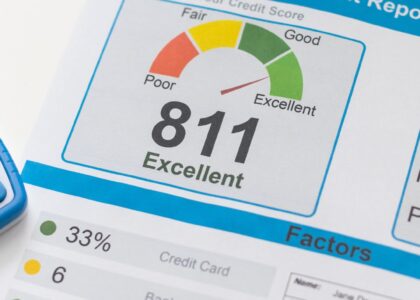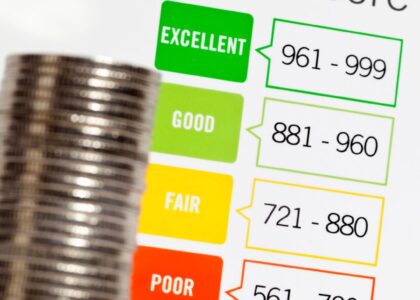In today’s financial landscape, having good credit is essential for various aspects of our lives. Whether you’re applying for a loan, renting an apartment, or even seeking employment, a good credit history and score can significantly impact your opportunities and financial well-being. In this article, we will delve into the concept of good credit, explore credit scores and credit reports, discuss what constitutes a good credit score for different age groups, address common misconceptions, and provide actionable tips on improving and maintaining a healthy credit profile.
What is Good Credit?
Good credit refers to a positive credit history and score that indicates an individual’s creditworthiness. It signifies that a person has a responsible track record of borrowing and repaying debts, which lenders and creditors consider favorable. A good credit history demonstrates financial responsibility and reliability, making it easier to obtain loans, credit cards, favorable interest rates, and other financial opportunities.
Understanding Credit Scores and Credit Reports:
- Credit Scores: Credit scores are numerical representations of an individual’s creditworthiness. They are generated based on various factors such as payment history, credit utilization, length of credit history, credit mix, and recent credit inquiries. Credit scores can range from 300 to 850, with higher scores indicating better creditworthiness.
- Credit Reports: Credit reports are detailed records of an individual’s credit history, including information about credit accounts, payment history, public records, and inquiries. They are maintained by credit bureaus and serve as the basis for calculating credit scores. It’s essential to regularly review your credit report to ensure accuracy and identify any potential issues.
What is a Good Credit Score for a 20-year-old?
For a 20-year-old, establishing credit and building a solid financial foundation is crucial. While credit scores vary among different credit scoring models, a good credit score for a 20-year-old generally falls within the range of 670 to 739. It’s important to start building credit early, maintaining good payment habits, and being mindful of credit utilization to achieve and maintain a favorable credit score.
Debunking the Myth: Is a 700 Credit Score Bad?
Contrary to popular belief, a credit score of 700 is not bad; in fact, it falls within the realm of good credit. The FICO credit scoring model categorizes credit scores into several ranges, with 700 falling within the “good” range. However, it’s always beneficial to strive for even higher scores, as they offer more financial opportunities and better interest rates.
How to Boost Your Credit Score from 700 to 800
Improving your credit score from 700 to 800 requires dedication and strategic financial management. Here are some effective steps to take:
- Maintain Good Payment Habits: Pay your bills on time, including credit card balances, loans, and utilities, to demonstrate reliability and responsibility.
- Reduce Credit Utilization: Aim to keep your credit utilization ratio below 30% by paying off debts and managing your credit card balances effectively.
- Diversify Your Credit Mix: Having a healthy mix of credit accounts, such as credit cards, loans, and mortgages, can positively impact your credit score.
- Avoid Opening Multiple New Accounts: Opening multiple new credit accounts within a short period can negatively affect your credit score. Be strategic and selective in your credit applications.
- Regularly Monitor Your Credit Report: Check your credit report for errors or discrepancies and address them promptly to maintain accuracy.
Factors That Raise Your Credit Score
Several factors contribute to raising your credit score over time. These include:
- Consistent On-time Payments: Paying your bills and debts on time consistently demonstrates your creditworthiness.
- Length of Credit History: The longer your credit history, the more positive impact it can have on your credit score. Lenders and creditors value a lengthy credit history as it provides them with a more comprehensive view of your borrowing and repayment patterns.
- Responsible Credit Mix: Maintaining a diverse mix of credit accounts showcases your ability to handle different types of credit responsibly. Having a combination of revolving credit (such as credit cards) and installment loans (such as a mortgage or car loan) can positively impact your credit score.
- Limited Credit Inquiries: While occasional credit inquiries are normal, excessive inquiries within a short period can raise concerns for lenders. Be mindful of applying for new credit too frequently, as it may have a temporary negative impact on your credit score.
- Responsible Debt Management: Demonstrating responsible debt management, such as keeping your balances low and paying off debts systematically, contributes to a positive credit score. It’s crucial to avoid overextending yourself and only borrow what you can comfortably repay.
Maintaining good credit is a valuable asset that opens doors to financial opportunities and peace of mind. By understanding the concept of good credit, credit scores, and credit reports, you can take proactive steps to improve and maintain a healthy credit profile. Remember to establish good payment habits, manage credit utilization, and regularly monitor your credit report for accuracy. With patience, diligence, and responsible financial practices, you can achieve and maintain good credit, setting a solid foundation for your financial future.





